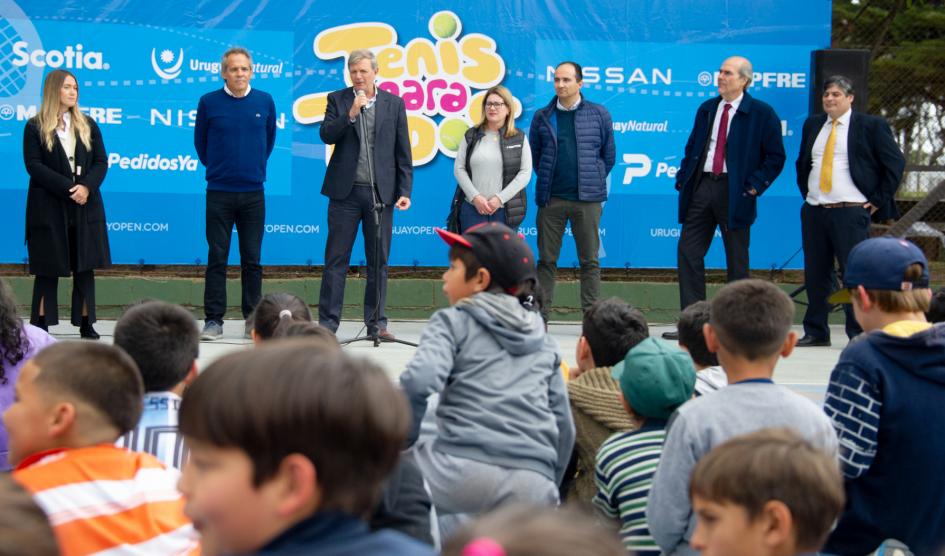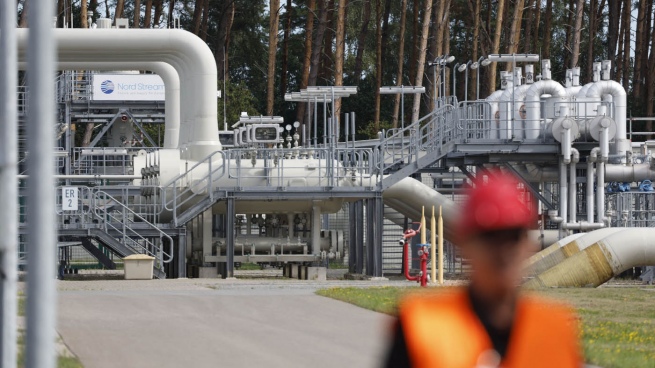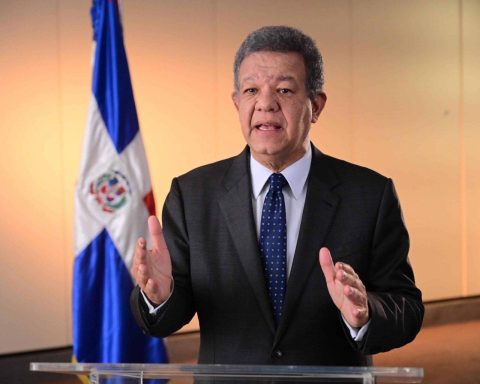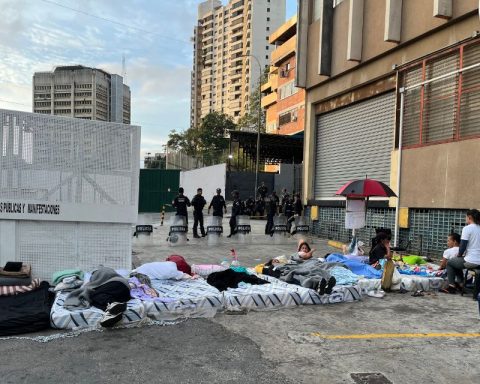Tennis for All, the corporate social responsibility project developed by the Uruguay Open, provides the opportunity to learn and enjoy sport year after year to more than 150 children living in homes managed by INAU, while promoting the incorporation of values. This year, the program adds the practice of tennis to children and young people with different abilities, residents of the Esperanza Station home.
The commemorative activity was carried out this Tuesday the 11th in Plaza de Deportes No. 3, and it was attended by the National Secretary of Sports, Sebastián Bauzá; the president of INAU, Pablo Abdala, and the director of Uruguay OpenDiego Perez.
The children who carry out the tennis initiation experience are between 7 and 10 years old, and attend weekly the Tennis Development Center, located in Plaza de Deportes No. 3, in Parque Rodó. The project is guided by a teaching team, which has been directed by Professor Pelayo Martínez since its inception.
The households participating in this project are: Desafío Project, La Terraza, Antonio Machado, Los Caramelos, Rambla Francia, Andariegos, Nuestra Señora de Lourdes, Resurrection, Amiclub, Club Kaleidoscopio, La Pascua Civil Association, Ombú Pequeno and Casturu.
In statements to the press, Bauzá stressed that “sport is an illusion, and a right”, and, in this sense, expressed that the National Sports Secretariat (SND) is on the way to achieving a greater number of initiatives like this one in the country so that all children can access sports practice.
With regard to this initiative – which has been active for ten years without interruption -, the SND collaborates through the loan of the facilities to carry out the classes.
For his part, the president of INAU, Pablo Abdala, highlighted in his speech the importance of this project in the opportunities offered to children in terms of access to sports and recreation, which, according to the chief, collaborates in his search for happiness and having a “full life”.
This year, for the first time, the project incorporates children and young people with different abilities, from the Esperanza Station home, into its activities, which represents a sign of inclusion, Abdala pointed out. Presidency


















